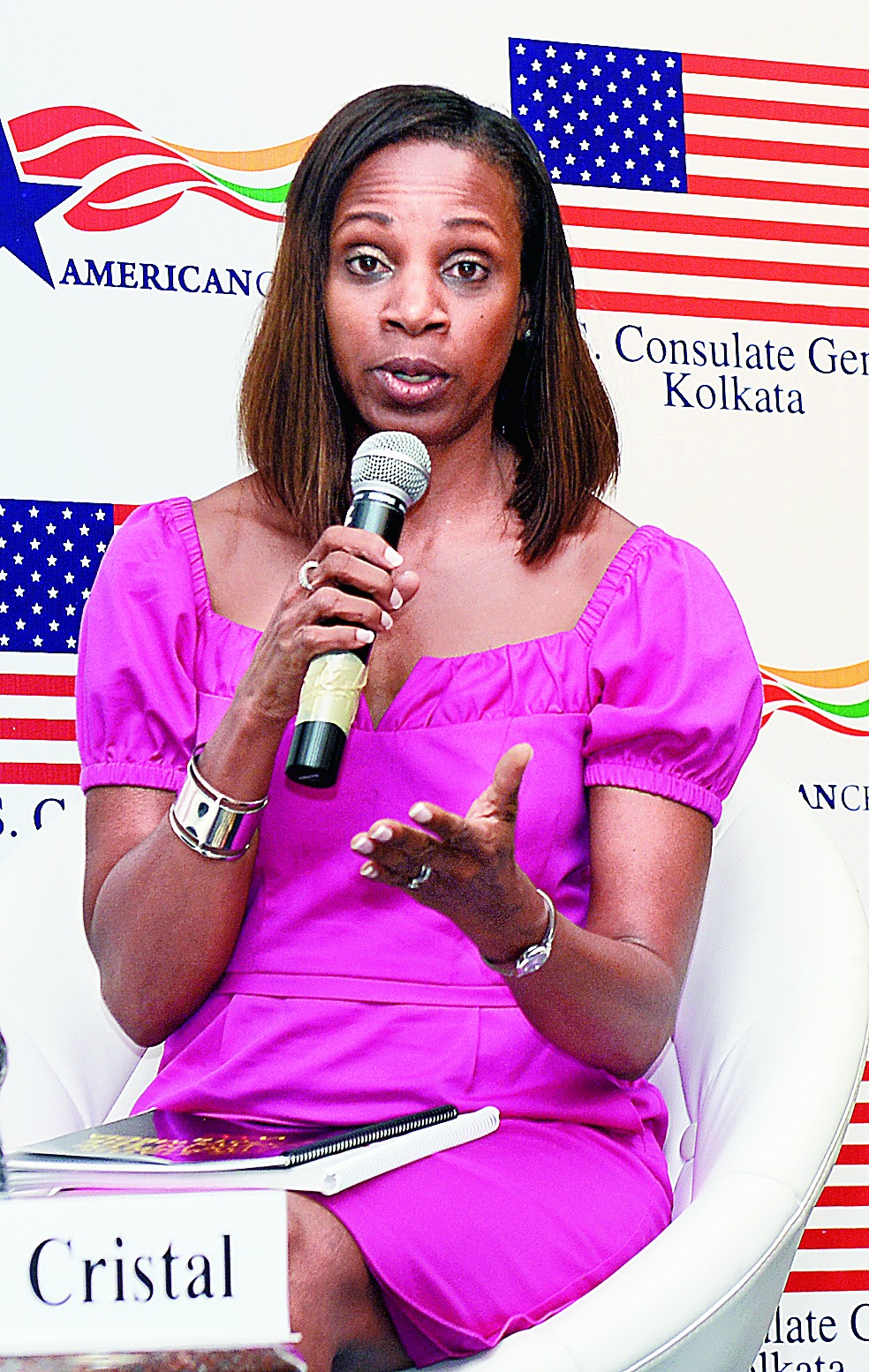
Calcutta: Skewed representation in media, silenced voices in web forums and rising cases of harassment at the workplace - the story of gender bias is much the same in America as in India or elsewhere across the world.
Cristal Williams Chancellor, a journalist-turned-rights advocate from the US on a four-day tour of the city, heard stories of Indian women and shared her own stories too.
"It is our mission to make women more visible. Women should be equally represented in all media and their stories heard," said Chancellor, the director of communications at Women's Media Centre, Washington DC, on her maiden visit to India.
Chancellor rued women's stories are largely silenced even today. "In America, women comprise just 38 per cent of the media. Their opinions are largely overshadowed. Men are telling most of the stories," she told Metro.
Yet, things are changing, even if slowly. "Campaigns like #MeToo and #TimesUp have helped more and more women to come up and speak of their experiences of abuse. We have been working for safe space and gender equality at the workplace for decades. But these campaigns have helped usher in the change faster. It is important to make noise for the shift to happen... numbers signify power," Chancellor said.
The rights champion underlined the need for continued public engagements and discussions to keep the current momentum going. "I am in India for the same purpose," she said.
Chancellor has been educating people against the sexualisation of women in films and television that has made teenagers four times more vulnerable to abuse.
Digital media, according to her, is the most unsafe space for women at present. "Safe space and free speech are clashing here. Women's voices are being silenced through collective bullying and verbal harassment. Sometimes their private details are exposed to shame and stifle them," Chancellor said, stressing the urgent need to make online platforms safer for women.
"Women are coming forward to share experiences. They are talking about harassment. They are hoping for change and are also being heard at times. The dialogue has thus begun. But solutions are yet to trickle in," she said.
Chancellor was later joined by filmmaker Anindita Sarbadhicari, journalist Swati Bhattacharya and drama therapist-director Shuktara Lal for a discussion at the American Center on Monday.
Sarbadhikari shared how she failed to find a producer for a film on trafficking. "I want to tell stories. I don't want to compromise. But it is very tough," she said, highlighting all that is wrong with cinema.
Bhattacharya said only 27 per cent of women in India hold jobs. "Equal opportunity is a distant future," she said. Women are denied loans, jobs, land and even a separate toilet in workplaces, she said.
Lal read out some tweets that have tried to bully and abuse women in power and media. "Why is a woman not criticised for her work but always for her sexual choices?" she wondered.
"You would not find a woman who has not hit the glass ceiling in the media. I faced that when I was in the newsroom. As a woman of colour, I had additional challenges. Let our stories be our voice," signed off Chancellor.










